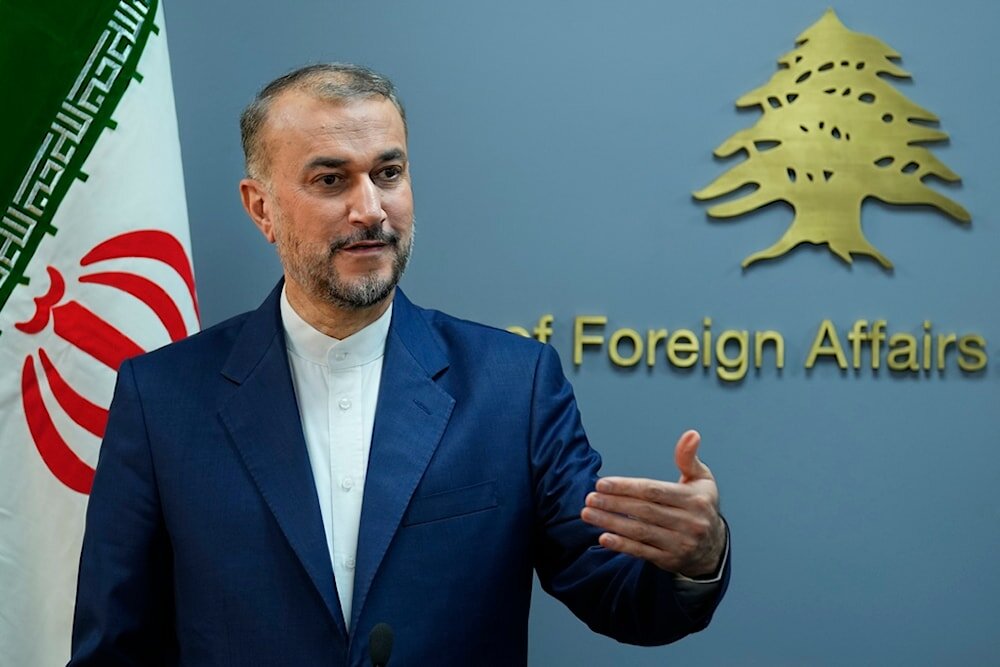Nuclear messages exchanged between Tehran, Washington: Iran FM

TEHRAN- Iranian Foreign Minister Hossein Amir Abdollahian has noted that Tehran and Washington have exchanged messages regarding the stalled nuclear talks.
In an interview with Lebanon’s Arabic-language al-Mayadeen television news network in the Swiss city of Geneva on Tuesday, he added that “letters are still being exchanged between Tehran and Washington regarding several topics.”
“The American side sometimes hints at its desire for all participating parties to revert to their previous obligations as per the nuclear agreement. On our part, we frankly expressed our readiness to welcome recommendations that would allow reversion to previous commitments, but also annul the unilateral sanctions imposed on Iran,” he clarified.
Iran’s top diplomat stressed that “under President Ebrahim Raisi’s government, we held serious talks with nuclear negotiators, but unfortunately, at a certain point, the war in Ukraine cast its shadows on them.”
“The Iranian government affirmed from the start that it does not consider the nuclear agreement as an approach to resolving the country’s issues, but Iran has proven that it is one of the countries most committed to its international pledges.”
UN performance
Abdollahian also said that “the performance of the United Nations is unfortunate, and Iran cannot leave space for recognition of the Israeli entity, because it does not acknowledge its legitimacy and considers it an occupation power over Palestinian lands.”
He also averred that “the Security Council did not fulfill its duty as the United States continuously, unilaterally, and arrogantly exploited its veto power. Every prospect and proposal of a ceasefire resolution in Gaza has been rejected by the American veto, exhibiting a contradictive behavior to the banners of primary human rights. Even at the UNHCR, we still have not seen any adequate mobilization in this regard.”
“During the first month of the war and the start of the genocide in Gaza, I visited Geneva and met with prominent officials at the United Nations, including the High Commissioner for Human Rights, and frankly told them that the commotion made, in the same council, when claims circulated the death of an Iranian woman, would not be forgotten,” top diplomat continued.
ICJ lawsuit
In an answer to a question about lawsuit filed by South Africa against the Israeli regime, he said that “there are two simultaneous lawsuits filed against the Israeli apartheid and criminal occupation. The first one is a South African lawsuit filed against Israel and is currently being adjudicated. We hope the judges announce their charges in the upcoming days for them to be transformed into principles and foundations for all UN organizations, including the UNHRC.”
The second lawsuit, he clarified, “was raised by the UN requesting judicial guidance regarding the legal consequences arising from the policies and practices of Israel in the Occupied Palestinian Territory, based on a decision made a few weeks ago. The ICJ's guidance, in this case, could become a precedent that presents a solution to the Palestinian cause.”
Probability of regional war
The Iranian foreign minister was asked about Iran’s stance on the increased Western presence in the region in light of the growing number of U.S. and other Western naval entities and whether this could signify an escalation that could affect and reach Iran, Amir Abdollahian simply answered: “No.”
“Our evaluations indicate that Netanyahu wants to expand the war and wants to implicate the United States in conflicts and wars, now more than ever, at a rate that surpasses the holistic support the U.S. and its allies have been supplying the Israeli entity with... But the main point is that the U.S. and other Western nations are seemingly encountered with specific conditions,” he said.
Red Sea clashes
Amir Abdollahian also stressed that he talked with his British counterpart about the joint U.S.-UK aggression on Yemen, calling it a “strategic mistake” and underlining that Yemen has “proven that they do not trifle with any party regarding the security of their lands. They have been able to sound this message and clearly relayed that ships carrying military cargo to Israel will be stopped.”
“Remarkably, they kept their vows to the fullest. If you take a satellite look at the Red Sea, you will find hundreds of ships on that route. We realize that shipping and insurance costs have soared, but trade ships that do not carry any supplies to the Israeli occupation cross the Red Sea safely,” he stated.
Iran regional “proxies”
Given the existence of any proxy linking to Tehran, Abdollahian answered that “we do not have any proxies in the region. Hezbollah and the Resistance in Palestine work as they see fit, based on their own interests. Yemen follows the same framework as well. In Iraq and Syria, groups to fight Daesh were formed and still operate for their countries’ interests and considerations.”
“It would be best if the United States focused on finding a political solution instead of throwing accusations and fabricating false scenarios,” he underlined.
Disavowing Western accusations that Iran is using regional Resistance movements, whether in Iraq, Yemen, Syria, Lebanon, Palestine, or elsewhere, as regional proxies and tools to further its interests, he replied, “Five months of war proved that warfare is not the solution, thereby emphasizing the need for political resolutions realistically and from a Palestinian-centric lens.”
No difference between Biden, Trump
When asked for a comment on the upcoming U.S. elections, the Iranian foreign minister underlined that Tehran does not see a significant difference between both U.S. President Joe Biden and candidate Donald Trump.
“Over the past 45 years, the U.S. saw several Democratic and Republican presidents. What is of significance to us is their behavior. If they treat Iran with mutual respect and forego their errors and hostility, then we would return the respect,” he said.
Amir Abdollahian also underscored that “if they continue employing this hostility, then our response would be direct and appropriate, whatever the party and political direction they might belong to and have.”
Leave a Comment